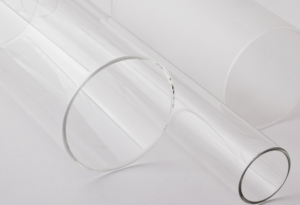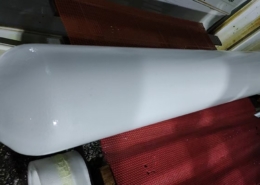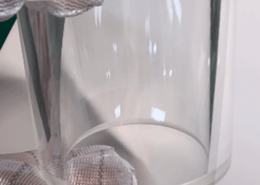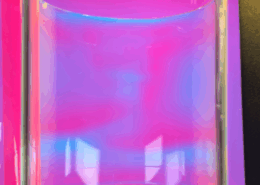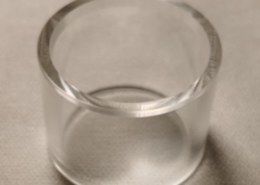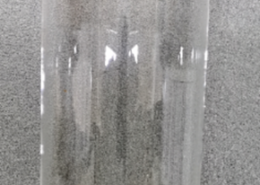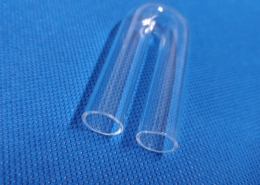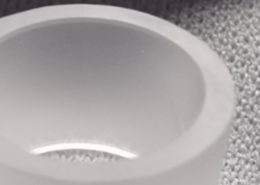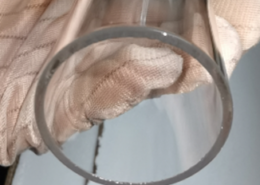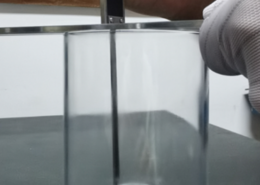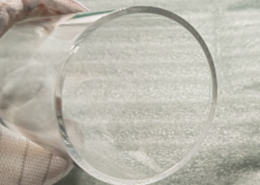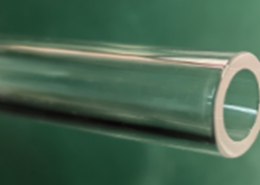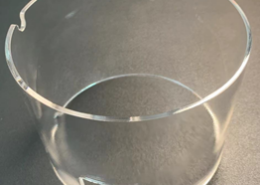Glass tubes manufacturing
Largely used for their specific characteristics like heat and chemical resistance or transparency, glass tubes are seen in many industries and laboratories. SINOPTIX have a large offer of custom and standards glass tubes.
Glass tubes materials :
There are four main material use for glass tubes :
Soda-lime glass
This is the most commun glass, also called “window glass”, it is by far the cheaper material but present low resistance to temperature chocs, low working temperature and lower resistance to chemicals than the other materials. Main usages are for consumable goods.
Borosilicate
Also known as Pyrex, borosilicate is widely used in laboratory equipment due to its high resistance to temperature choc (low coef of thermal extension) and high resistance to chemicals. Softening point is at 820°C.
Fused silica / quartz
Shows even better temperature and chemical resistance than borosilicate, but comes at a higher price. Working temperature can easily go as high as 1100°C, its softening point is as high as 1730°C.
Sapphire
Sapphire is indeed the most resistant material for heat (working temperature up to 2050°C), chemicals and mechanical (hardness MoHs 9) resistance. But manufacturing sapphire tubes comes at a high price and dimensions range is more limited than other material. Sapphire tubes are made by machining and not but tube extrusion they are though longer, more costly and limited to available raw material bloc dimensions.
Some of our glass tubes references:
Types of tubes
Shapes
- Normal tubes : relates to glass tubes of all dimensions with low request in terms of tolerances
- Precision tubes : precise tolerances as requesting in demanding industrial and research applications
- Capillary tubes : very small outside diameter glass tubes, in the order of the mm or less.
- Glass tubes assemblies : glass tubes with flanges, or other glass parts welding on it, like a manifold or tubes including a filtering element for example.
Aspects
Glass tubes can be transparent, either raw from extrusion or polished (mechanical or flame polishing). While tubes can be used for some optical applications, the optical quality they can reach is much lower than optical windows.
Surface can also comes with a fine grinding or a sanding making them opaque, it also permit a certain roughness used for glass tubes connectors.
Milk quartz can also be used for glass tubes, the material is by nature non transparent (aspect of milk).
Tolerances
Tolerances will be related to the material used and the size of the tube. SINOPTIX usually offer tube tolerance down to +/- 0.1mm, thanks to contact us for tighter requests.
Glass tube manufacturing process
Below is a short video of Borosilicate small diameter tubes manufacturing. Different dimensions, materials and quantities may be manufactured in different ways.
Glass tubes applications
Main usages of glass tubes :
- Laboratory glassware
- Lighting
- Scientific instruments
- Preforms for extrusion (for optical fibers for example)
- Consumable goods
- F&B applications
- Others

